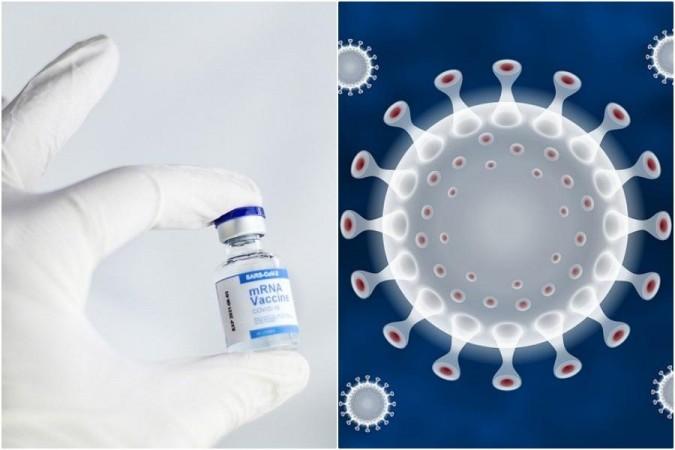As latest studies show that the Oxford-AstraZeneca vaccine may be associated with a condition characterised by low platelet counts, in rare cases, while Covaxin was found effective against Delta variant, an international team of researchers found that Pfizer's jabs are protective against Beta and Gamma variants.
The research team, led by the University of Edinburgh, analysed more than 1.7 million people who had their first jab of Oxford-AstraZeneca jab and 800,000 who took the Pfizer-BioNTech vaccine in Scotland.
A low number of platelets -- blood cells that help prevent blood loss when vessels are damaged -- can result in no symptoms or can lead to an increased risk of bleeding or, in some cases, clotting. The risk is known as idiopathic thrombocytopenic purpura (ITP).

"The data indicated that there was a slight increase in ITP in the second week following vaccination for those who received the Oxford-AstraZeneca vaccine and possibly also increased risk of arterial clotting and bleeding events," the researchers said.
"The 11 cases of ITP per million vaccine doses is similar to numbers seen for Hepatitis B, MMR and flu vaccines, which range from 10 to 30 cases of ITP per million doses," they added. However, the team found no adverse events in relation to ITP, clotting or bleeding in their analysis for the Pfizer-BioNTech vaccine.
The results, published in the journal Nature Medicine, also showed people most at risk from ITP tend to be older -- a median age of 69 years old with at least one underlying chronic health problem such as coronary heart disease, diabetes, or chronic kidney disease.
"This very small risk is important, but needs to be seen within the context of the very clear benefits of the vaccines and potentially higher risks of these outcomes in those who develop Covid-19," said Professor Aziz Sheikh, Director of the University of Edinburgh's Usher Institute.
But, the recipients of the Oxford-AstraZeneca vaccine should be made aware of the slight increased risks of ITP, the experts noted while also stressing that the risk of developing these disorders from Covid-19 is potentially much higher.
Covaxin fights Delta variant
In another view, India-made vaccines are found to be effective on the mutants which have been seen in India till date, according to India's top two Covid-19 experts -- NITI Aayog Member (Health) V.K. Paul and AIIMS Director Randeep Guleria.

Addressing various doubts of people regarding Covid-19 vaccines, these experts "asserted and reassured" their claims about the two vaccines used in India -- Serum Institute of India's Covishield and Bharat Biotech's Covaxin.
The two "Made in India" vaccines got the Drug Controller General of India's (DCGI) approval for restricted emergency use this year leading to the beginning of the world's largest vaccination drive from January 16.
Asked if blood clotting is common after taking the vaccine shots, Guleria said it has been seen earlier also that blood clotting after surgery occurs less in Indian population in comparison to that in the US and European populations.
This side-effect, the AIIMS Director said, named as vaccine-induced Thrombosis or Thrombocytopenia -- is very rare in India and is found to occur in a much lesser proportion than in Europe. "Hence, there is no need to be scared of this. Treatments are also available for this, which can be adopted, if diagnosed early."
Covishield side effects
Paul said that a few cases of this complication did come to the fore, particularly with regard to AstraZeneca vaccine. "This complication occurred in Europe where this risk was seen to be present to some extent in their younger population due to their lifestyle, body and genetic structure."
But, the NITI Aayog member said, he would like to assure that "we have systematically examined this data in India and found that such blood-clotting incidents are almost negligible here -- so negligible that one need not worry about it."
"In European countries, these complications were found to be almost 30 times more than that in our country."
(With inputs from IANS)
















